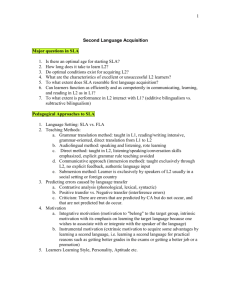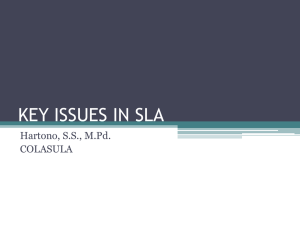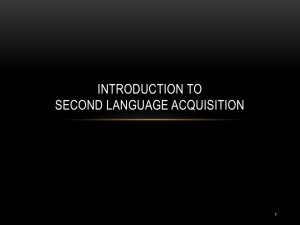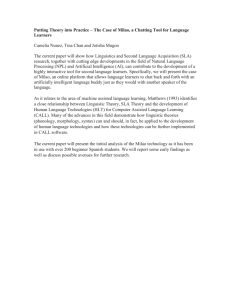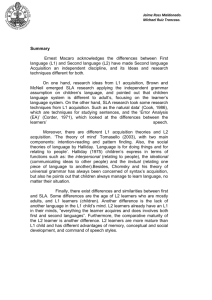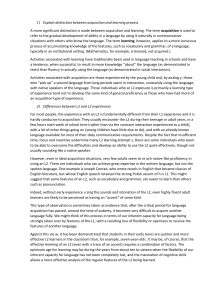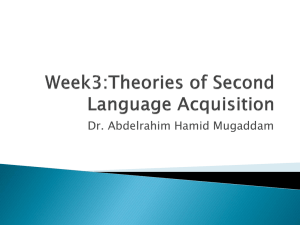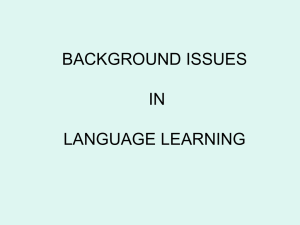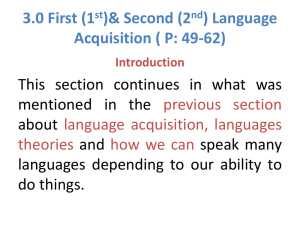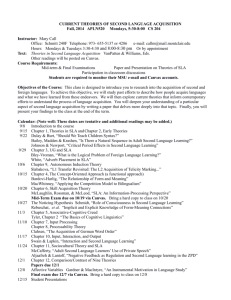Second Language Acquisition Theory
advertisement
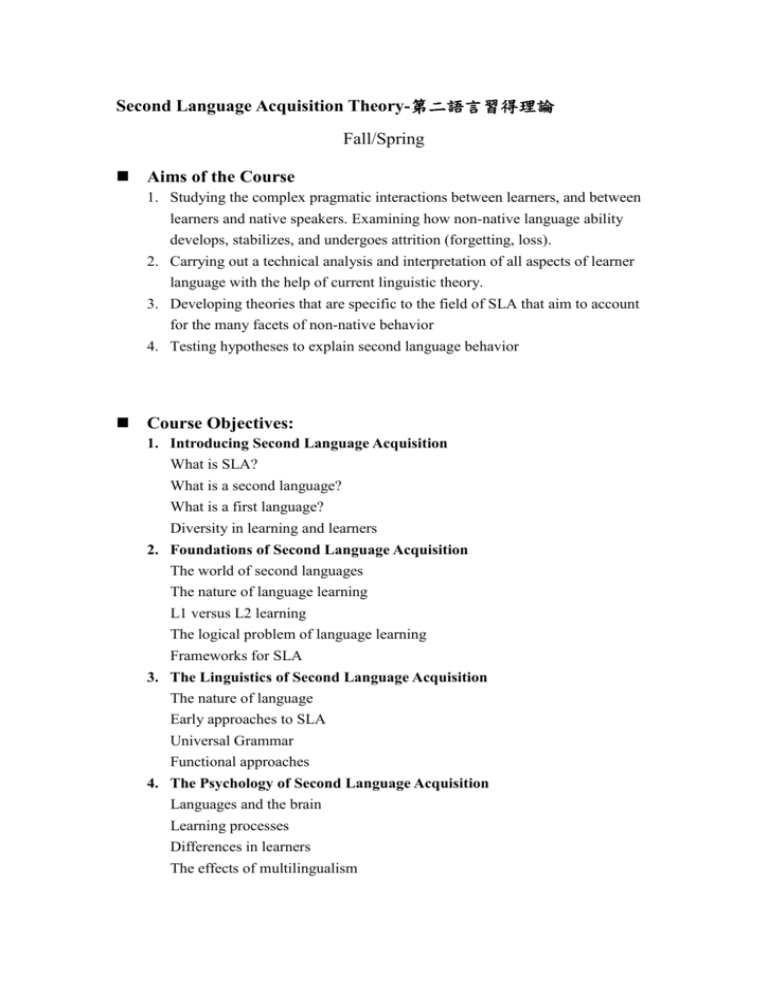
Second Language Acquisition Theory-第二語言習得理論 Fall/Spring Aims of the Course 1. Studying the complex pragmatic interactions between learners, and between learners and native speakers. Examining how non-native language ability develops, stabilizes, and undergoes attrition (forgetting, loss). 2. Carrying out a technical analysis and interpretation of all aspects of learner language with the help of current linguistic theory. 3. Developing theories that are specific to the field of SLA that aim to account for the many facets of non-native behavior 4. Testing hypotheses to explain second language behavior Course Objectives: 1. Introducing Second Language Acquisition What is SLA? What is a second language? What is a first language? Diversity in learning and learners 2. Foundations of Second Language Acquisition The world of second languages The nature of language learning L1 versus L2 learning The logical problem of language learning Frameworks for SLA 3. The Linguistics of Second Language Acquisition The nature of language Early approaches to SLA Universal Grammar Functional approaches 4. The Psychology of Second Language Acquisition Languages and the brain Learning processes Differences in learners The effects of multilingualism 5. Social Contexts of Second Language Acquisition Communicative competence Microsocial factors Macrosocial factors 6. Acquiring Knowledge for L2 Use Competence and use Academic vs. interpersonal competence Components of language knowledge Receptive activities Productive activities 7. L2 Learning and Teaching Integrating perspectives Approaching near-native competence Implications for L2 learning and teaching
